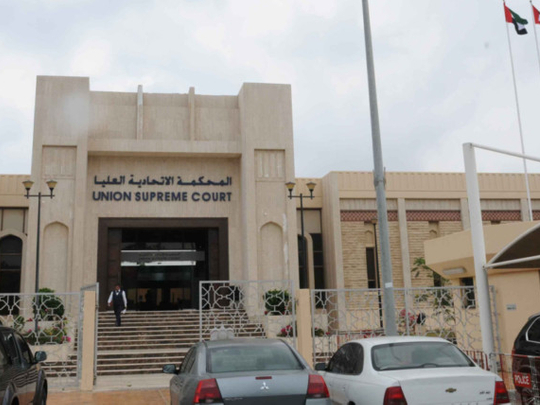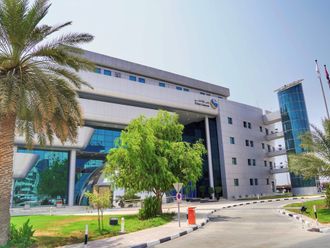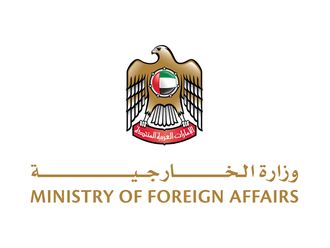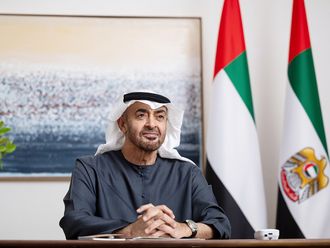
Abu Dhabi: The Supreme Court’s state security court held its tenth session of the national security trial on Monday presided by Judge Falah Al Hajiri.
The session lasted about six hours with only an hour’s intermission, at the end of which the judge said the next session would be on May 14. Tuesday’s session will be primarily to hear the defence of 20 suspects, who asked to represent themselves.
Judge Al Hajiri ordered the continued imprisonment of the male suspects, the continued holding of the female suspects on bail, and declared the names of the ten fugitives who fled the country and continue to remain at large.
Monday’s session heard from 14 male suspects and six female suspects who spoke in their own defence. All suspects denied the charges, including the establishment, administration, and organisation of a secret clandestine operation with the aim of overthrowing the UAE government.
The suspects declared that their loyalty was, and has always been, to the country and to the president, the vice-president, and to the rulers and crown princes of the legitimate UAE government. During the trial, the suspects declared they felt pride in their work in the interest and advancement of the country.
All suspects also denied their involvement in any activity that would endanger the security of the country, or that would destabilise its political system.
The accused said their activities never went beyond their participation in cultural, religious, charitable and social activities that was run by the Al Islah society. This social club, the suspects added, was established in 1974 by a presidential decree in that year, and all of their activities were legitimate and all the activities carried out were not against the laws and regulations of the country.
The suspects, who were accused of financial misconduct, denied the charges and stated they were monitoring and administering their own wealth through legitimate companies. They said the companies were never run for any illegal or banned commercial activities, nor were they for the sake of any secret organisation as the attorney-general office has accused.
All suspects assured the court that they belonged to the Sunni sect of Islam that declares submission to the ruler of the country and refuses disobedience to him and rejects female rule.
The suspects also attempted to raise the issue of incorrect procedures carried out by the investigation team of the attorney-general’s office.
The female suspects defended their long history in serving the country, particularly in the field of education, and pointed out that their involvement included raising public awareness in Sharia and religious teachings that were far removed from politics. They also claimed that they were never involved in insulting the country’s political system or its leaders.
The male suspects, some of whom worked as judges, defended themselves by highlighting the irregularities and illegitimacy of the procedures used in their investigation and arrests. The suspects tried to show the mistaken procedures carried out by the Public Prosecution to arrest them. They claimed the prosecution did not abide by legal procedures, which state that there must be an arrest warrant and a search warrant for private property such as homes and offices. The suspects added that the procedures followed were against articles number 26 and 28 of the constitution, and articles 216 and 218 of the criminal law.
Some of the suspects objected to some of the answers that were in the prosecution’s investigation files. They said that they did not give such answers and that investigators changed what they said.
Two of the suspects also denied any relation to the television satellite channel Hayatana (Our Lives). They also denied offending the country and its leaders through any television programme on the aforementioned channel and on another channel called Al Hiwar (The Conversation).












